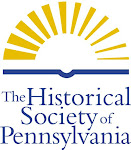In one of the first telegrams I read, Anne's nephew Ben requests that she have a warm bath for him in the afternoon:

An audacious request, in my opinion, but not out of the ordinary.
Other noteworthy telegrams include a request from Mary to send salad "at once" and another from Samuel to send "a quantity of celery and some lettuce."


Another odd request reads "Do not send laundress tomorrow. Send David's gun by Charles tomorrow. Mary J.B. Chew"

And finally, this request: "Please send some linen and underclothing today."

This last request is, it turns out, quite poignant. Samuel Chew was, at this time, taking care of his brother Ben before his death. In one 1885 letter, Samuel writes to Anne that Ben had lost all control of himself, and that he had used up all of the linen and underclothing in the house because of the constant changing that was required. It is unclear what disease finally caused Ben's death, but the symptoms Samuel describes include inability to express himself or understand what was happening around him and the inability to control his bodily functions. These letters (and other series throughout the collection) offer graphic representations of disease and care for the sick in the 18th and 19th centuries.



